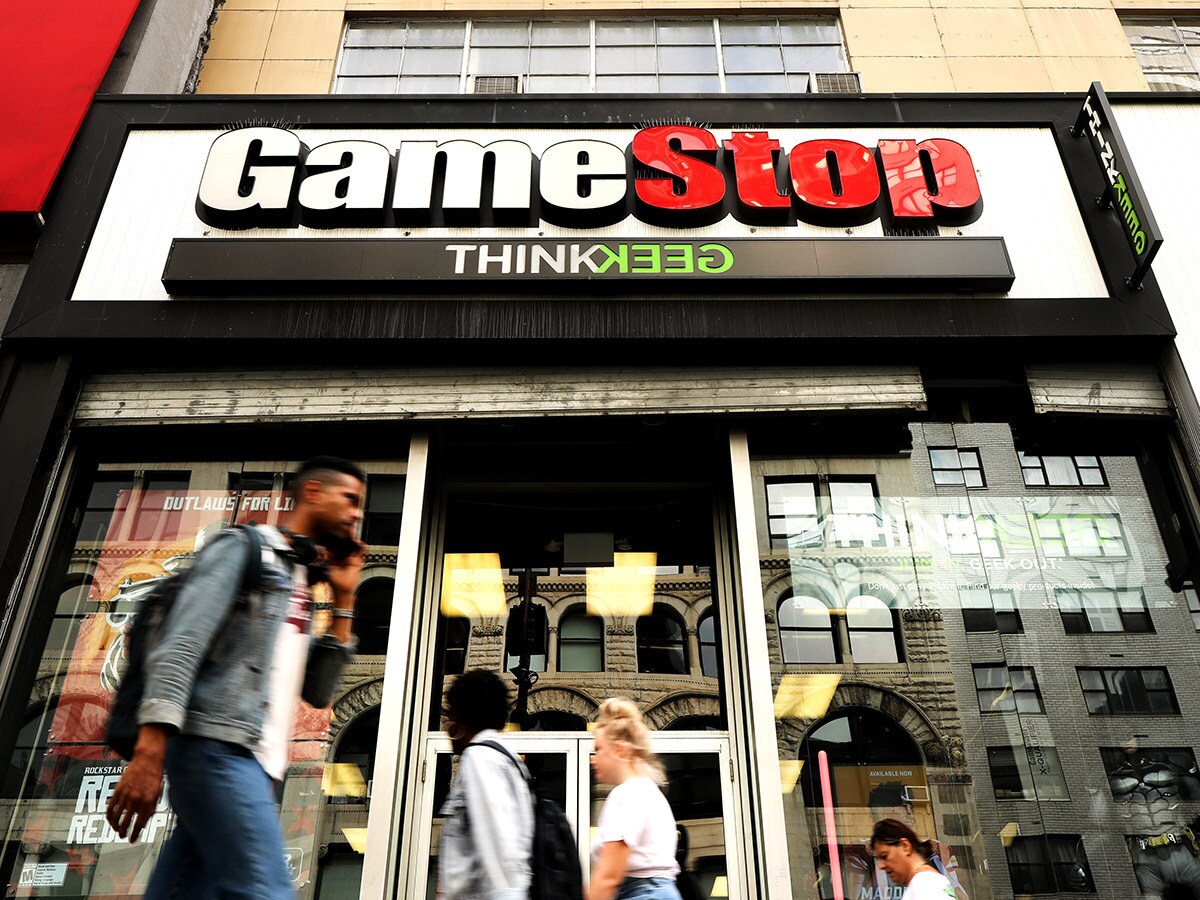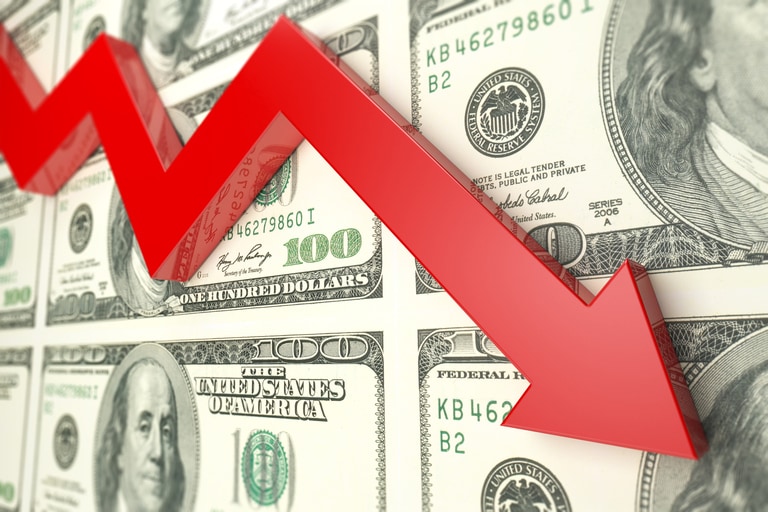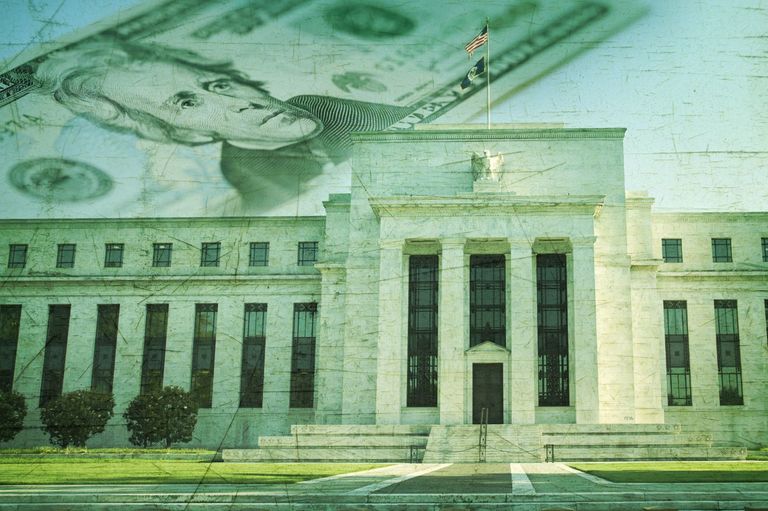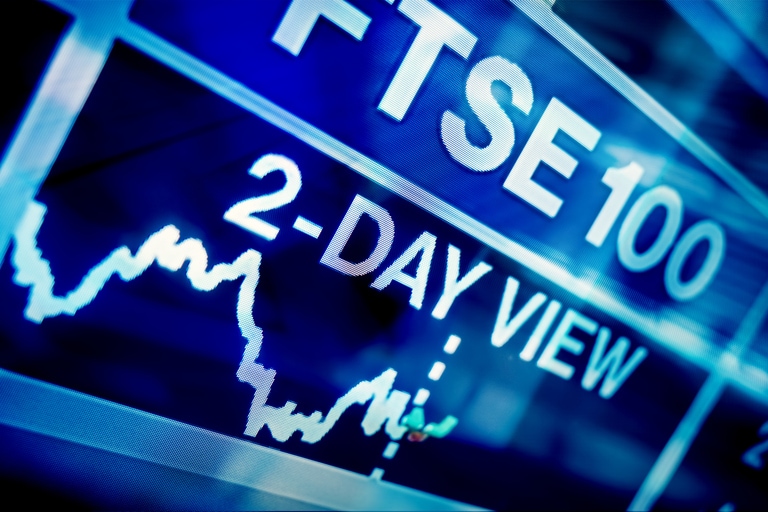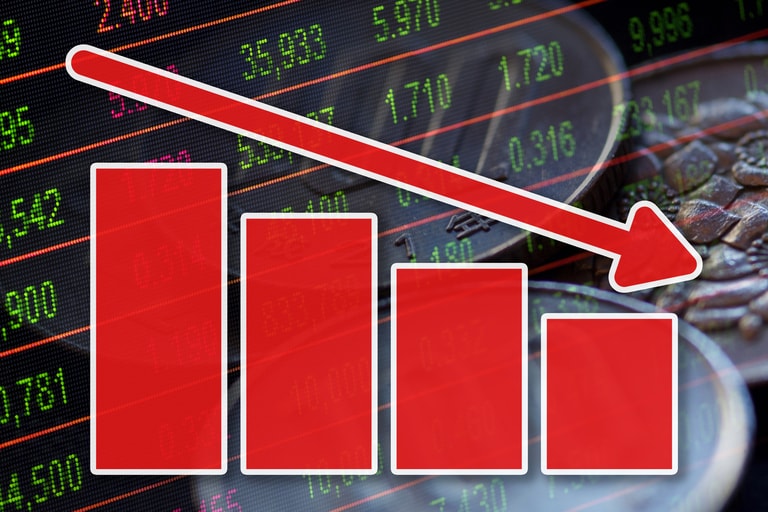The GameStop [GME] share price remains highly volatile. Shares in the video game retailer, which became the poster boy of the 2021 meme stock frenzy, hit a 52-week high of $63.92 last November before plunging roughly 70% to a 52-week low of $19.40 in March this year. After spiking in late March and again over the summer, the shares closed at $27.36 on Friday 2 September, down 28.4% year-to-date. Will the company’s Q2 results, due on Wednesday, help the stock power up once more?
Meme stocks trending again
In August, the share prices of beleaguered US retailers GameStop and Bed Bath & Beyond [BBBY] and the cinema chain AMC Entertainment [AMC] soared, driven by a fresh round of excitable forum posts, tweets, memes and a whole lot of trader fomo, or fear of missing out.
GameStop’s share price jumped from $22.29 at the close on 24 May to a five-month high of $47.99 during intraday trading on 8 August – an increase of 115%. Mind you, that’s nothing compared to the meme stock frenzy of January 2021, when GameStop shares rose to $347.50, up 10,692% from $3.25 in April 2020.
Away from this summer’s message board hype, real-world money was made. The influential investor Ryan Cohen, who co-founded pet supply store Chewy [CHWY] and is now the chair of GameStop, reportedly banked $60m after he closed his position in Bed Bath & Beyond in mid-August. Even more lucratively the 20-year-old student Jake Freeman was reported to have made $110m by entering and exiting a position in the home goods store over a matter of weeks.
Weak fundamentals
The common theme that unites this summer’s meme stock rally with that of early 2021 is arguably the mentality of the predominantly millennial and Gen Z momentum traders who inflated the stocks’ valuations. They’re not looking at underlying fundamentals.
Despite Cohen’s claim, stated in an SEC filing, that he is “overseeing a systematic transformation” of GameStop, the company’s fundamentals remain weak.
In Q1, net losses widened to $157.9m, or $2.08 a share, up from $66.8m in the year-ago quarter. Although revenue in the three months to the end of April grew 7.9% year-on-year to $1.38bn, sales of hardware, which includes games consoles, fell on an annual basis, as out-of-home activities became an option again following post-pandemic reopening. Looking ahead, the company – which operated 4,573 stores as of January – continues to face a long-standing competitive threat from online video game retailers, which offer gamers the convenience of downloading games at home.
Further losses expected
Losses for Q2 are expected to come in at $0.35 a share. The Q2 results will be the first to offer a glimpse of the performance of GameStop’s new non-fungible token (NFT) marketplace, which launched in July. The company’s plan to reinvent itself as a platform for trading digital collectibles appears risky in light of the NFT market’s implosion in recent months.
In an eventful July, GameStop also carried out a four-for-one stock split, sacked its Chief Financial Officer Mike Recupero, and announced a fresh wave of job cuts in a bid to turn the struggling business around.
Analyst scepticism
Given the embattled company’s weak fundamentals, it’s hardly surprising that analysts appear sceptical about GameStop’s prospects.
Two analysts polled by MarketBeat each gave GameStop a ‘sell’ rating. Meanwhile, data collated by the Financial Times shows that one analyst rated the shares a ‘hold’ while another considered them a ‘sell’. The FT’s research also found that, of three analysts offering a 12-month price target on GameStop, the median target was $7.50, representing a 72.6% decrease on the 2 September closing price.
With meme stock valuations inflated by what Justin Kleber, an analyst at ratings agency Baird, calls “non-fundamentally focused market participants”, it’s possible that hype and herd instinct could cause the GameStop share price to fluctuate further in the coming months. Knowing when to get on and off the rollercoaster seems to come down to luck as much as judgement. Traders will therefore need to do their homework and keep their wits about them if they’re to gauge with any accuracy which way the shares will move after GameStop reports its Q2 results on Wednesday 7 September.
Disclaimer: CMC Markets is an execution-only service provider. The material (whether or not it states any opinions) is for general information purposes only, and does not take into account your personal circumstances or objectives. Nothing in this material is (or should be considered to be) financial, investment or other advice on which reliance should be placed. No opinion given in the material constitutes a recommendation by CMC Markets or the author that any particular investment, security, transaction or investment strategy is suitable for any specific person. The material has not been prepared in accordance with legal requirements designed to promote the independence of investment research. Although we are not specifically prevented from dealing before providing this material, we do not seek to take advantage of the material prior to its dissemination.
